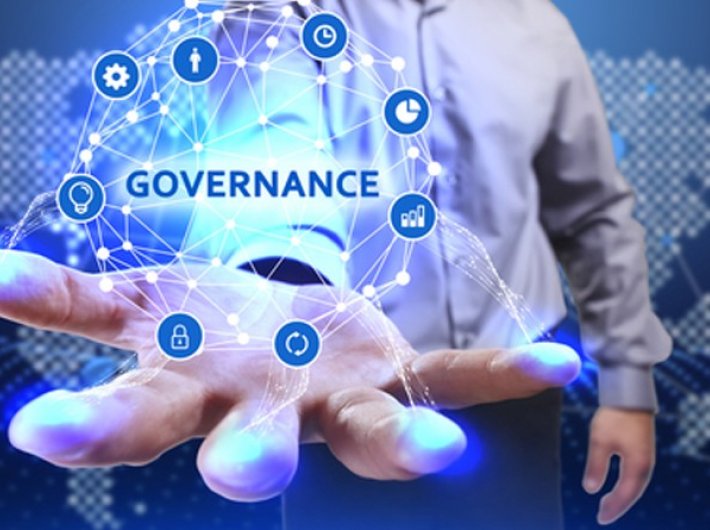With an increasing number of Indians owning smartphones, m-governance has the potential to boost public sector employees' productivity, enhance the delivery of information and services from the government, and reduce expenses, which would encourage greater public engagement.
The digital revolution is being led by India. Digital governance is a key component of the government's ambition to transform India into a society where everyone has access to the internet. It includes both M-governance and E-governance, which are major methods for the delivery of services via mobile devices. Serving the interests of the public and improving their lives requires a major step in bringing the integration of various solutions built on different technology stacks into government. Along with other approaches, the smartphone has very potential in India's digital success story. As a result, the government is committed to providing services via mobile and is oriented to utilizing the potential of cell phones.
With an increasing number of Indians owning smartphones, m-governance has the potential to boost public sector employees' productivity, enhance the delivery of information and services from the government, and reduce expenses, which would encourage greater public engagement.
In terms of digital transformation, Government agencies provide digital solutions for citizen-centric services in several industries, including transportation, health, education, agriculture, logistics, and others and citizen are availing services through mobile phones anytime anywhere. One cannot deny the impact of cost-effective and cheap internet data plans to avail egovernance services and awareness among citizens to access the same.
Centre for Development of Advanced Computing (C-DAC) is an Autonomous Scientific Society under the Ministry of Electronics & Information Technology (MeitY), Government of India. C-DAC has been instrumental in promoting digital acceptance across major public sectors and Govt. entities. It is involved in developing end-to-end state-of-art products, systems, services, and solutions. C-DAC has been at the forefront of the Information Technology (IT) revolution, constantly building capacities in emerging/enabling technologies, innovating & leveraging its expertise, and skill sets to develop/deploy IT products and solutions for different sectors of the economy. Some major contributions by C-DAC in this area may be recognized ePramaan: An e-Authentication framework, which facilitates multi-factor strong authentication and SSO, Aadhaar Data Vault (ADV) as a service: a REST API-based service for storing encrypted Aadhaar numbers and generates reference numbers against stored Aadhaar numbers, OLabs is based on the idea that physical lab experiments for students can be taught using the Internet, more efficiently and less expensively, e-Hastakshar indigenously developed online e-Sign service which facilitates digital signing of electronic documents to citizens in a legally acceptable form and Mobile Seva National mGoverance Initiative.
Mobile Seva is a countrywide initiative under mobile governance that aims to provide an integrated whole-of-government platform for all Government departments and agencies in the country for the delivery of public services to citizens and businesses over mobile devices using SMS, USSD, IVRS, CBS, LBS, and mobile applications and AppStore.
mSeva AppStore is the government’s mobile application store, set up under the guidance of the Ministry of Electronics and Information Technology. The ‘Atma Nirbhar Bharat Mission’ is the umbrella scheme. It is the nation’s first indigenous AppStore which is a trusted and authentic app ecosystem. It has been created to provide Indian mobile application developers with a hosting platform for their mobile applications developed for the delivery of public services through mobile devices.
mSeva AppStore has hosted more than a thousand apps for Citizen & Department trust. The AppStore now has opened for all entities of society to host their secure apps freely. It’s a big initiative of GoI keeping in mind the welfare of the Indian mobile app developers and citizens of India as the indigenously developed Appstore ensures the security and authenticity of the hosted apps.
mSeva AppStore is available at https://apps.mgov.gov.in. The government Department/private Developers can host mobile applications, which are related to delivering/providing government and other public services related to health, education, agriculture, financial, online payments, electoral services, social welfare, food, transport, energy, etc. Users can download applications from Mobile Seva AppStore for accessing various government/public services anytime from anywhere.
The governments in India have gone for revamp with the rapid digitization of public service. The role of Mobile Governance in the digital-led future is visionary. With 1.38 billion people and two-thirds of them below the age of 35, the world’s largest youth population “India” is poised to become one of the world’s leading markets in Mobile Apps. This surge can be considered as an opportunity to regulate and organize this industry for promoting an indigenous app hosting platform. Government supports the need for a trusted indigenous platform for mobile apps by keeping the hunt in between various availability.
In today’s scenario, choices are boundless when it comes to availing and providing digital services and the best among the group will always stand out regardless of its initial phase challenges. The same goes with this native Appstore, which stands out in the market with its firm policies yet is successful in gaining the trust of its stakeholders by maintaining the secure App Ecosystem. Free of cost, with surety and compliance against Indian guidelines and adversaries issued by national security watchdogs are bonus points for choosing this AppStore. Again, the in-house testing by government of India agency ensures the integrity and privacy of the citizen accessing this App data. The Government, the App industry and the citizen, every stakeholder will be benefitted from this indigenous platform.
With the implementation of Mobile Governance platforms, citizens can avail of integrated public services through multiple mobile-based channels in a seamless and timely manner and enable citizens to keep a track of Government-to-Citizen (G2C) communications and transparently in receiving timely updates.
